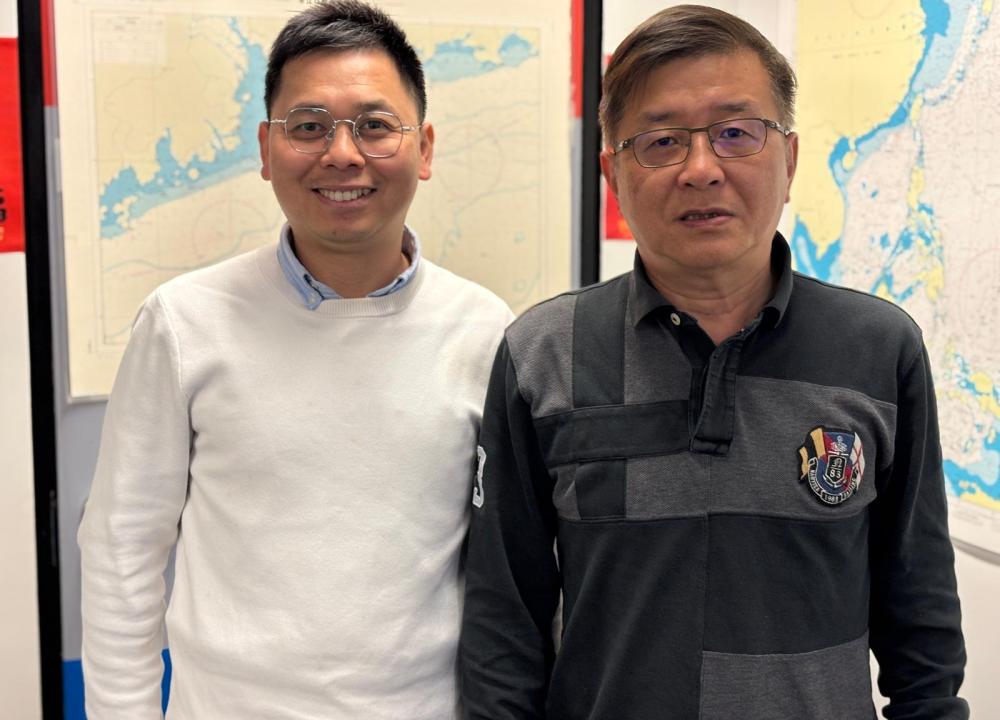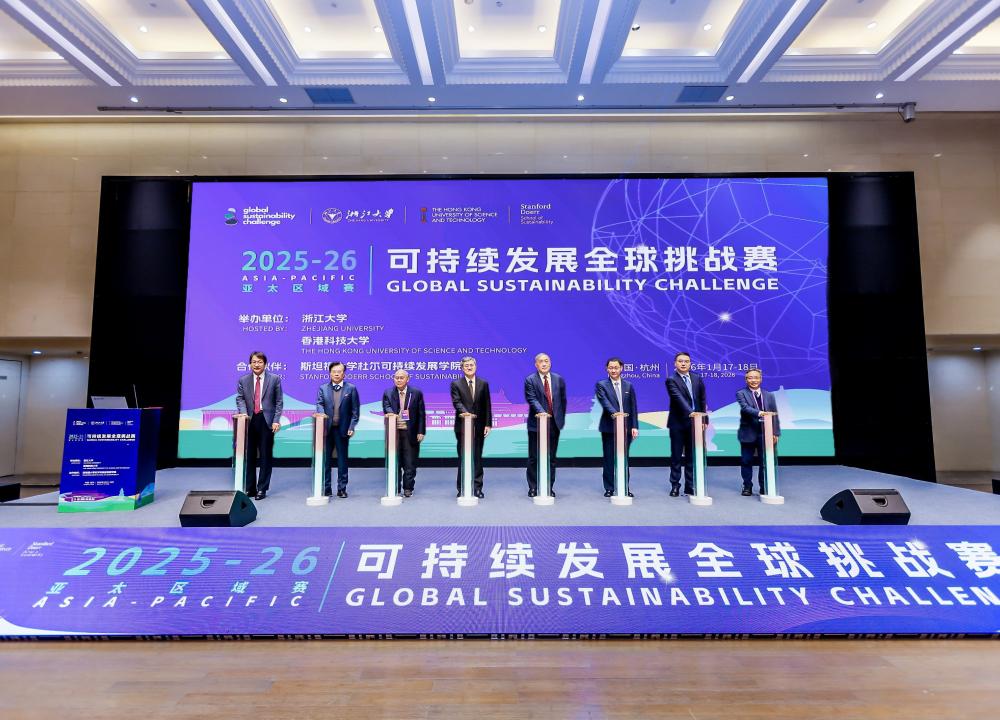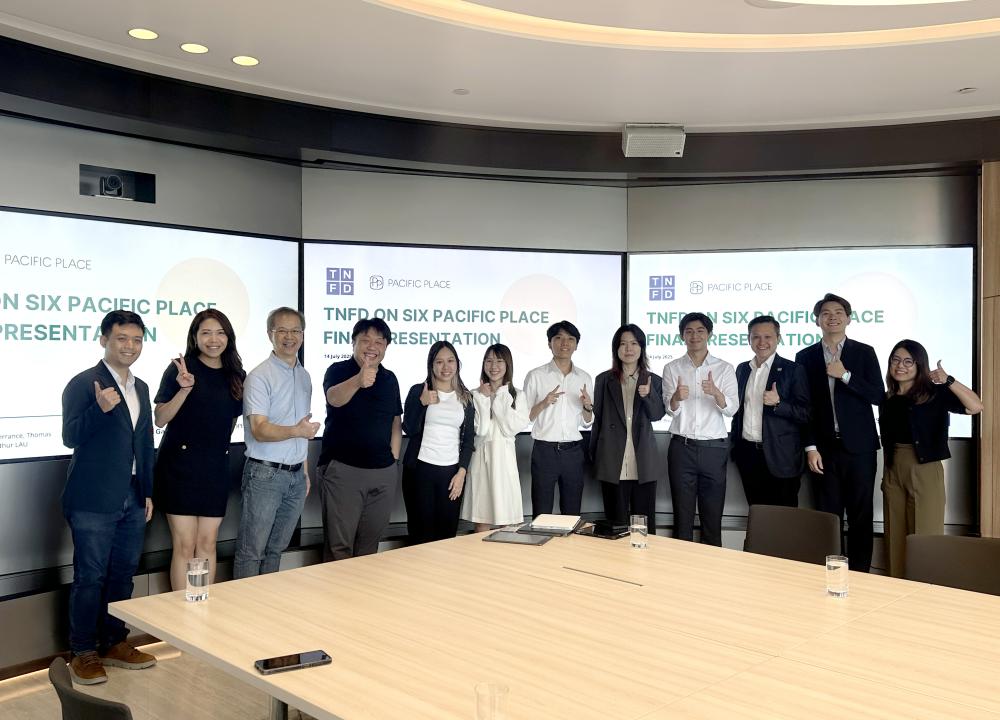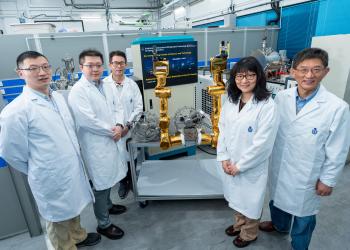News & Stories
2026

News
HKUST Study Reveals Why Tropical Cyclones Rainfall Surges Before Landfall
A research team at The Hong Kong University of Science and Technology (HKUST) has analyzed 40 years of data covering around 1,500 tropical cyclones and discovered that average rain rates surge by more than 20% in the 60 hours before landfall. The study is also the first to clearly identify the physical mechanisms behind this increase, showing that rising humidity over coastal areas and enhanced land-sea frictional contrasts strengthen convection, intensifying rainfall ahead of landfall. The results provide valuable insights for improving coastal disaster preparedness and early‑warning systems.

News
HKUST and Zhejiang University Co-host Regional Finals of Global Sustainability Challenge HKUST Student Team to Represent Asia Pacific in Global Championship
The Hong Kong University of Science and Technology (HKUST) and Zhejiang University (ZJU) recently co-hosted the Pacific Asia and Australasia Regional Finals of the 2025-26 Global Sustainability Challenge at ZJU’s Zijingang campus in Hangzhou. The inaugural competition, initiated by the Stanford Doerr School of Sustainability, brings together leading educational institutions and experts around the world to provide a platform for students to design, implement, and showcase innovative sustainability solutions. Ten outstanding teams, including one from HKUST, have advanced to the global finale in April to compete for the championship.

News
HKUST Partners with Industry Leaders to Pilot Nature-Related Assessment for Commercial Properties
The Hong Kong University of Science and Technology (HKUST) has partnered with Gammon Construction Limited (Gammon), Swire Properties, and AXA Climate on a pioneering initiative to apply the Taskforce on Nature-related Financial Disclosures (TNFD) framework to commercial premises. A team of students from HKUST’s BSc in Environmental Management and Technology (EVMT) has completed Hong Kong’s first student-driven TNFD-based assessment for commercial properties, providing strategic recommendations to integrate nature into business and financial decisions.
News
HKUST Research Reveals Cost-Effective Food Waste Treatment Through Sewage Systems
A research team at The Hong Kong University of Science and Technology (HKUST) has developed an innovative urban food waste management framework by analyzing food waste data from 29 large cities worldwide, including Hong Kong, Beijing, and New York. The study shows that in cities with higher food waste moisture loads, such as Hong Kong, grinding food waste and diverting it into the sewage system is more effective than relying solely on landfilling. This approach can reduce overall greenhouse gas emissions by about 47% and lower total waste-management costs by about 11%. The research provides a new, quantitative basis for shaping food waste management strategies in cities around the globe.

News
HKUST's AI Breakthrough Transforms Storm Forecasting Enabling Earlier Life-Saving Warnings
In a critical advance for climate resilience, researchers from The Hong Kong University of Science and Technology (HKUST) have developed an AI model that can predict dangerous convective storms—including Black Rainstorms, thunderstorms and extreme heavy rainfall like those that have hit Hong Kong—up to four hours before they strike. This world-first technology, developed in collaboration with national meteorological institutions and powered by satellite data and advanced deep diffusion technology, improves forecast accuracy by over 15% at the 48‑kilometer spatial scale compared with existing systems. This breakthrough strengthens the overall accuracy of the national weather forecasting system and promises to transform early warning systems for vulnerable communities across Asia.
2025

News
HKUST Leads International "Hong Kong Operation Robot" Project
The Hong Kong University of Science and Technology (HKUST) has been appointed by the China National Space Administration (CNSA) to lead the international "Hong Kong Operation Robot" project for the Chang'E-8 mission. The project will unite global aerospace scholars and experts to develop a multi-functional lunar surface operation robot. Equipped with a mobile charging station and capable of dexterous operations, the robot is designed to make significant contributions to the nation's lunar exploration missions.

News
HKUST-Led Study Warns of Climate “Whiplash” Threatening Global Stability by 2064
A groundbreaking climate study led by The Hong Kong University of Science and Technology (HKUST), in collaboration with an international research team, reveals that a under high-emission scenario, Northern Hemisphere summer monsoons region will undergo extreme weather events starting in 2064. Asia and broader tropical regions will face frequent "subseasonal whiplash" events, characterized by extreme downpours and dry spells alternating every 30 to 90 day which triggers climate disruptions with catastrophic impacts on food production, water management, and clean energy systems.
News
HKUST and PolyU Inaugurate State Key Laboratory of Climate Resilience for Coastal Cities
Approved by the Ministry of Science and Technology (MOST) of the People’s Republic of China, the State Key Laboratory of Climate Resilience for Coastal Cities (SKL-CRCC) – jointly established by The Hong Kong University of Science and Technology (HKUST) and The Hong Kong Polytechnic University (PolyU) – was officially inaugurated today. Dedicated to addressing the challenges posed by climate change, the Laboratory aims to enhance infrastructure resilience in Hong Kong, the Chinese Mainland and coastal cities worldwide. Its core missions include strengthening climate-risk early-warning systems and emergency response capabilities, and promoting sustainable development to address challenges posed by climate change. Concurrently, a two-day international symposium is being held, bringing together world-leading experts and scholars to discuss how climate resilience in coastal cities can be strengthened globally.








